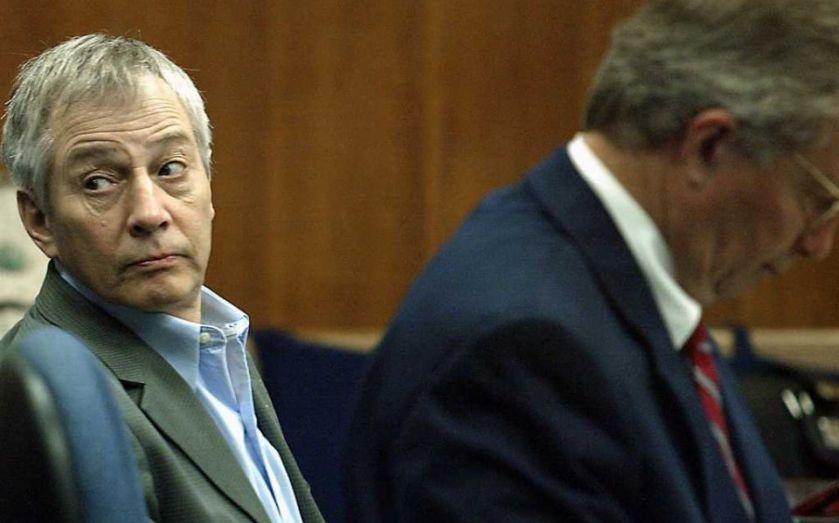Who is Robert Durst? US billionaire says he “killed them all” during The Jinx filming

Billionaire Robert Durst may have uttered the five words that will end his decades-long flirtation with justice. During The Jinx, a six-part HBO documentary about him, Durst finds himself alone in a bathroom and mutters: “What the hell did I do? Killed them all, of course.” He was arrested on Saturday.
The “them” may refer to three alleged victims killed over the space of three decades. An elderly male neighbour, his first wife and a close female friend.
But who is Robert A. Durst, and why was he the subject of a documentary?
The eccentric son of one of New York’s most prominent real estate moguls, Seymour Durst, Robert is a 71-year-old millionaire who first came to public attention following the disappearance of Kathleen Durst (previously McCormack), his wife.
The two had married, moved to Vermont and opened a health food store, but by the time she went missing in 1982, she was said to be considering divorce. He was questioned but never charged.
A friend of Durst’s, Susan Berman, was said to have knowledge of the murder and in 2000 she was found dead in her flat. A handwritten note was passed to police, saying there was a “cadaver” in her home. Again, Durst was questioned but never charged, and handwriting tests were inconclusive.
A year later, in 2001, Durst was again suspected of murder. An elderly neighbour, Morris Black, was found dismembered and floating in Galveston Bay. Durst was arrested and put on $300,000 (around £200,000) bail, but promptly disappeared. He was arrested after being found in Pennsylvania, trying to shoplift a chicken sandwich and some sticking plasters.
Despite admitting in the trial that he had hacked up Black’s body until he had been “swimming in blood” he was acquitted after successfully arguing self-defence. He said he and Black had grappled and during the struggle a gun Black was holding went off. The jury believed him.
Now Durst’s past seems to be catching up with him. The six-part series appears to have done what decades of police work could not.
Near the end of the show, Durst asked if he could use the bathroom but didn’t remove his microphone. Two years passed before the audio was found.
There does, however, remain a question regarding whether Durst’s apparent confession will be admissible in court because, although he was wearing the microphone, a bathroom is a space where privacy can reasonably be expected.
According to a professor at Columbia Law School contacted by the New York Times, the muttering may well be admissible, so long as no one tampered with the audio.